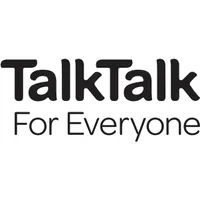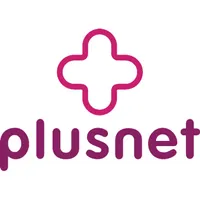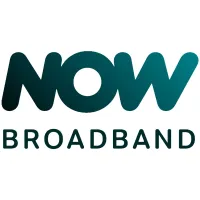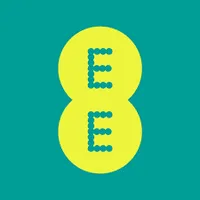Best cheap broadband deals in January 2026
Low cost broadband deals from a host of top providers
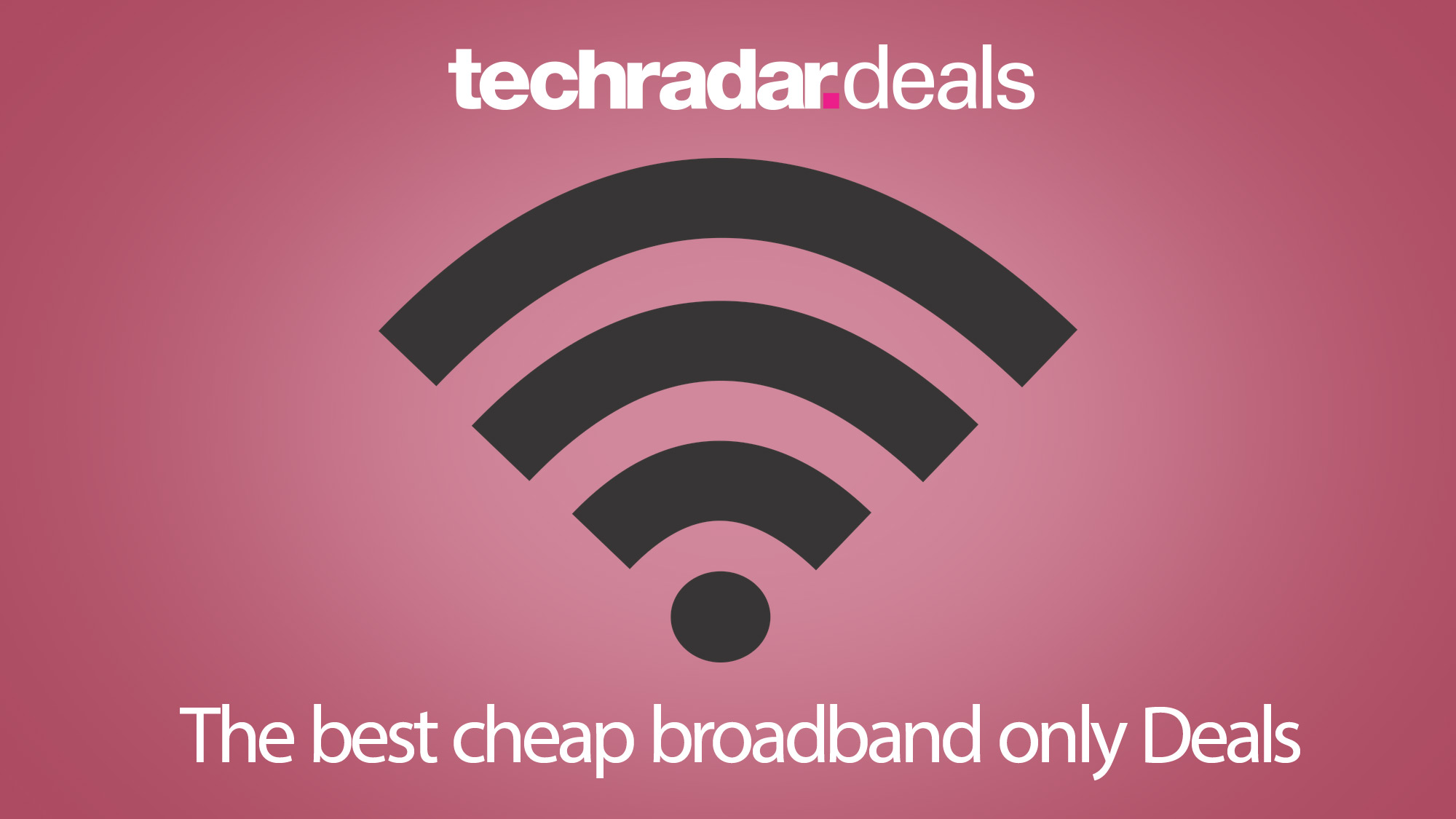
Looking for the cheapest and best broadband deals around? Well, now is the perfect time to consider a broadband-only deal. After all, it's possible to pick up a cost-effective and reliable fibre broadband package for as little as £25... maybe even slightly less if there's a sale on!
But, when you're deciding which cheap broadband deal is right for you, it's important to remember that cost shouldn't be the only deciding factor. You also need to partner with a company that's reliable and choose a speed that suits your needs.
Thankfully, we're here to help you get the best package at the best possible price. In this guide, not only have we revealed the best broadband-only deals on the market, but we've also provided a detailed rundown of each provider and their strengths, as well as lots of information on how to pick the right speeds for your requirements. Read on to find your perfect plan.
Today's Best Cheap Broadband Deal
Read moreRead less▼
Virgin Media | M125 Fibre Broadband | £26 a month | 18-month contract | 132Mbps avg. download speeds | No upfront costs
Virgin Media's popular M125 broadband package is now available for just £26 per month. The deal promises downloads of 132Mbps and uploads of 20Mbps with an 18-month contract. In addition, when you take out this impressive deal, you'll also receive a class-leading free WiFi Hub and unlimited data.
Cheap broadband deals: provider breakdowns
Read moreRead less▼
TalkTalk Broadband
If you're in the market for a cheap fibre broadband deal then TalkTalk is an excellent option. The company has gained a reputation for being a reliable and affordable internet provider and it regularly undercuts the likes of Sky, BT and Virgin. In fact, we think it has a claim to be the best value internet service provider around.
Read moreRead less▼
Plusnet Broadband
Plusnet frequently offers the cheapest broadband deals around. On top of this, it also regularly offers Mastercard rewards for new customers. If you're looking for a cheap fibre or ADSL package, then you usually can't go wrong with Plusnet.
Read moreRead less▼
Vodafone Broadband
Vodafone is usually one of the cheapest providers of fibre internet. Plus, the company regularly throws in promotions where you can upgrade to faster speeds without paying any extra costs. Added to this, Vodafone also usually provides deals and discounts for its mobile customers, too. So you may be eligible for additional savings.
Read moreRead less▼
NOW Broadband
NOW is one of the UK's cheapest broadband providers. Plus, the company also offers a number of excellent broadband and TV deals. Unsurprisingly, it was voted as the country's ‘best value broadband provider’ by Uswitch last year.
Read moreRead less▼
BT Broadband
BT certainly isn't the cheapest broadband provider in the UK, but it is one of the country's best and most popular. If you're willing to sign a two-year contract and you're a new customer, they'll usually throw in an incentive like a prepaid Mastercard. Also if you look at their tariffs when it’s a sales period - like Black Friday - you might pick up a better deal.
Read moreRead less▼
EE Broadband
EE now provides the quickest broadband package in the UK. The company is powered by BT, but it offers a wider range of deals. Like its sister company, it doesn't traditionally offer the cheapest broadband-only deals available. However, it does usually provide a great range of incentives and sometimes places its most popular deals in the sale.
Read moreRead less▼
Virgin Broadband
Like BT, Virgin isn't considered as one of the most affordable providers out there. However, Virgin is thought to be one of the best in the country and it often offers tremendous discounts and incentives throughout the year. So, it's worth keeping a lookout. If you can land one of these discounts, you can receive one of the fastest packages on the market at an affordable price.
Read moreRead less▼
Sky Broadband
Much like BT and Virgin Media, Sky is usually viewed as a premium broadband provider and it doesn't tend to offer many cheap deals unless you lock into a very long contract. In fact, the company is frequently the most expensive provider of internet services due to its complicated plans and big add-ons. That said, Sky does sometimes launch sales. Plus, if you'd like Sky TV, then it's well worth looking at the company's bundles.
Which cheap broadband plan is best?
Which provider has the cheapest broadband deals?
- Plusnet: frequently the UK's cheapest broadband provider
- NOW Broadband: cheap plans for broadband and TV bundles
- Vodafone: affordable offers on fibre internet
- TalkTalk: excellent prices across ADSL, fibre, and TV
- BT: often expensive but usually offers rewards for long-term commitments
- EE: can be expensive but does offer great deals in the sale
- Sky: often expensive but is known to offer great deals, incentives, and sales
- Virgin Media: like Sky and BT, expensive but can offer great incentives and promotions on ultrafast packages
What should you consider in cheap broadband?

What kind of speeds do I need?
When you're selecting a new broadband package, you'll notice that there are lots of different speeds available. The slowest average is around 10-12Mbps, while the fastest can easily exceed 1Gbps!
As you may expect, the cheapest options tend to fall on the slower end, while the quicker speeds are usually more expensive (but paying the extra can be worthwhile depending on how you use the internet).
Here’s a breakdown of the typical speeds offered by providers, as well as an outline of the speeds you may need:
ADSL speeds - average 10-12Mbps:
Historically, cheap broadband plans have offered ADSL connections that provide average download speeds of 10-12Mbps.
ADSL connections are perfectly fine if you're just using the internet for emails, searching the web, updating your social media and other similar tasks. However, if you're looking to watch the latest shows on Netflix or you live in a big household that has a lot of gadgets connected to your broadband connection, this kind of connection is going to struggle.
Due to this, ADSL connections are now seen as outdated and a lot of providers are in the process of removing these deals from the market. As a result, if you live in an area where you can access fibre broadband deals, you may be ineligible to receive an ADSL connection.
Fibre speeds - average 30-80Mbps:
Fibre connections are the most common way of receiving broadband in the UK. They're easily quicker than ADSL connections and most providers only charge a couple of pounds per month more (some even price match their most basic fibre deal to their ADSL package).
Basic fibre connections tend to average download speeds of around 34-37Mbps, while upgraded fibre connections provide average download speeds of 70-80Mbps. As this jump in performance from ADSL deals is significant and deals don't tend to cost too much more, a fibre connection is an option we advise most people to go for.
Not only will a fibre connection allow you to stream in HD with a lot less buffering, but it will be great for working from home. This type of connection is also perfect for houses with lots of smart gadgets, or if there are 3 or more people using the internet at once.
Generally speaking, entry-level fibre connections are fine for most households, but particularly large or connected homes will benefit from upgraded connections. These are also ideal for those who are working from home regularly.
Faster than fibre:
You can get packages that are faster than fibre - a connection type known as ‘Full Fibre’ - but these do tend to cost significantly more. As such, unless there's a sale, it's generally not worth considering these packages if you're just looking for a cheap broadband-only deal.
Full Fibre/ultrafast internet typically costs in excess of £40 a month, but this cost can be worthwhile if you're really reliant on the internet and have high usage demands.
Should I get ADSL or upgrade to fibre?
If you're completely driven by price and simply want to find the cheapest option available, then an ADSL deal will be the best choice for you... if packages like this are available at your address, of course!
However, although these deals are usually a couple of pounds cheaper per month than fibre packages, they provide vastly inferior levels of performance.
Although an ADSL deal will be okay if you only use the internet to check your emails, browse the web and update social media, it won't meet your requirements if you want to stream content from Netflix in HD or if multiple people in your household want to get online at once. If this is the case, you'll need a fibre package.
What is going to happen to ADSL?
Openreach - the main broadband network provider - says it plans to ‘retire’ its old copper network (which supports ADSL) when they’ve finished their Full Fibre rollout.
From December 2026, it's expected that ADSL connections will become unavailable UK-wide (except for in very specific and limited circumstances). At this point, it's hoped that gigabit-capable broadband will be available to more than 85% of the country.
What is the latest on the UK fibre rollout?
As of January 2024, around 97% of households across the country can now access fibre deals, thanks to Openreach’s rollout of this network.
As well as becoming more readily available than ever before, fibre deals are also now much cheaper than they used to be. For this reason, they're well worth considering and they're usually the option that's best for most people.
What contract lengths are available?
Today, the vast majority of broadband deals last for either 18 months or two years. However, options that last for either 12 months or one month are also available.
That said, if you're searching for the cheapest broadband options on the market, then you'll probably need to sign up for either an 18-month or a 24-month contract. As a general rule, the longer the contract, the less you'll need to pay upfront and the lower your monthly bills will be.
It's also worth pointing out that longer deals sometimes come with incentives. While some providers will simply waive or reduce the upfront fees, others will offer bonuses such as gift cards and prepaid Mastercards worth up to the value of £100!
Can I include TV or a phone line with cheap broadband?
While phone lines and TV plans can up the price of your broadband contract significantly, some cheap bundle options are usually available.
If you're interested in a phone line, then you'll be pleased to know that most internet plans include one in some form. However, if you'd like anytime calls, you will often need to pay an extra monthly fee or opt for a more expensive package.
If it's a broadband and TV bundle you're after, both Virgin and Now Broadband offer some excellent options. But of course, these deals do still cost significantly more than a broadband-only deal. Use our broadband and TV deals guide to find out more.
What extras can I get with cheaper broadband?
To build on the above, you’re unlikely to get a great deal else included with a cheap broadband deal, but you might find there are a few decent extras that come as standard. Most providers will offer antivirus protection, but some also have partner benefits where you can get some freebies. One example of this is Virgin Media and O2; if you’re an O2 customer who signs up with Virgin, you can get access to things like free speed boosts and WiFi extenders.

Are there any cheap alternatives to broadband?
While fixed-line broadband is going to be the obvious choice for most people, there are other affordable ways to get internet in your home. These can be more flexible, cheaper, or just more convenient for where you live.
Here's a rundown of the different types of broadband available in the UK:
4G and 5G home broadband
This is the closest you're going to get to an alternative for broadband. 4G home broadband is a system that utilises a SIM card in a special router to pump internet around your home.
It's a much more flexible option, allowing you to use it anywhere with a plug. On top of this, it is often more affordable, offers more choice with contract lengths and can be used anywhere there is a 4G signal.
Certain brands like EE and Three now also offer 5G versions of home broadband. This is perfect for anyone in a 5G region. However, 5G home broadband is more expensive and coverage can be patchy.
Interested in learning more? Then read our guides to 4G home broadband and 5G home broadband to see if these deals are right for you.
Mobile broadband
Mobile broadband is unlikely to be the best alternative to regular broadband. After all, it's the least powerful alternative option and often comes with a router that needs charging.
However, it can be taken on the move, doesn't need to be plugged in and is very affordable. As a result, mobile broadband is a great option if you need a temporary fix or haven't decided which cheap broadband plan to go for yet.
SIM plans
While SIM plans are primarily designed for your phone and are not necessarily designed for mass use in the home, a SIM plan can actually be a great way to get coverage in your household.
This could be the same SIM you use in your phone already. Alternatively, it could be one you get separately and put inside a router for a more affordable option.
There are plenty of great SIM-only deals out there, but you'll likely need something with an unlimited data supply.
Satellite broadband
As you may have guessed from the name, satellite broadband works via satellite transmission. As your connection is provided by orbiting vessels, you also need to purchase and install a receiver and dish to use this type of connection.
Although satellite broadband was historically quite slow and was only used by people in remote locations, today it can be used by anyone, anywhere and can provide speeds of up to 500Mbps.
That said, although there are lots of positives associated with satellite broadband, it's not really a solution that's suitable for people who are searching for the cheapest broadband deals on the market. This is because it remains quite a new technology and it sits on the pricey side as a result.
Cable broadband
Cable broadband is similar to Full Fibre broadband in the sense that it delivers speeds that range from 50Mbps all the way through to 1Gbps. However, a different type of network is used.
Virgin Media is the main provider of this type of broadband, although smaller providers also offer deals. To provide homes with a stable broadband connection, these providers use fibre-optic cables that run from the broadband exchange to the street cabinet. However, a different cable runs from the cabinet into your home.
This particular piece of tech is called a 'coaxial cable' and it is capable of transferring large amounts of data at ultrafast speeds, as well as phone and TV services, too.
Thanks to the choice of speeds available and the reliability of the network, cable broadband is incredibly popular. However, cable broadband isn't as widely available as fibre broadband. That said, Virgin Media has pledged to upgrade its network so that it reaches over 20 million homes by 2026.
Best Cheap Broadband Deals Comparison
Where to find the best cheap broadband-only deals
To find the best and most affordable broadband-only deals, simply head on over to our best broadband deals guide where we've outlined all of the best deals and offers available on the market today. You can also use our handy comparison tool below to dive deeper into today's best cheap broadband deals.
Sign up for breaking news, reviews, opinion, top tech deals, and more.

Rob is TechRadar's VPN Editor. Coming from a background in phones and technology, he's no stranger to the risks that come with putting yourself online. Over years of engaging with different platforms, testing the limits of his online persona, and feeling the brunt of several data breaches, Rob has come to gain a keen understanding of cybersecurity and the benefits of services such as VPNs in providing a secure online experience. He uses this to not only advise on the best ways to stay secure online but also share his own experiences and especially how to avoid trouble. Outside of work, you'll find Rob on the tennis courts, in the gym, or diving into the biggest and best games of the year.

